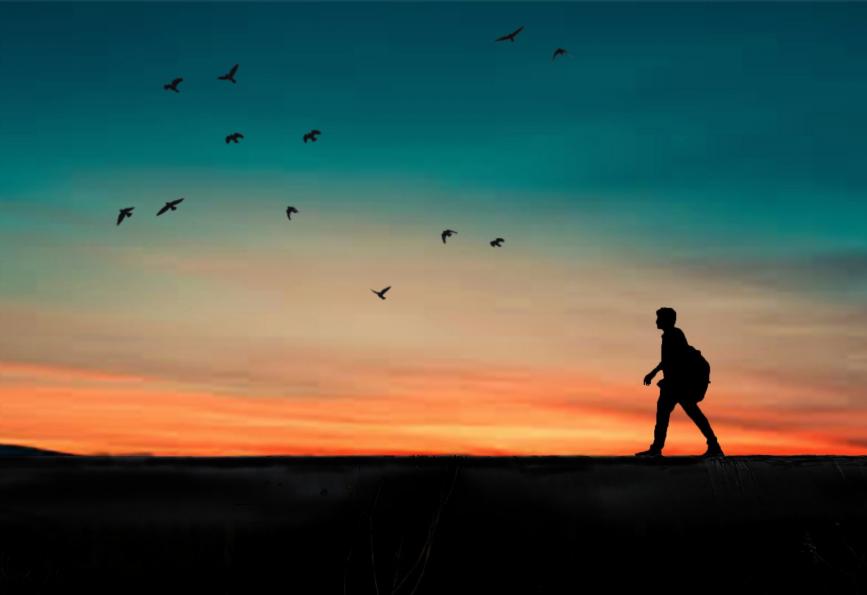
Published date: 14 May 2020
How do you begin to write a story about a mother who has lost her son?
Jayne’s son Bob died from dengue in 2016. He was 21. That’s how she will always remember him.
“I can’t ever refer to him in the past tense,” she says. “I can’t ever say ‘he was’. Because he is. I feel he is here. He’ll always be 21. I can’t see beyond that.”
It was Bob’s first real adventure overseas. Before he left the UK, he was in two minds. He was either going to Africa to help protect the elephants or to explore South East Asia with his mates.
He’d been volunteering for the Red Cross. He played football on the weekends and had an eclectic collection of music – from the Fall to King Tubby. “Honest to goodness, every single genre,” Jayne remembers. ”He’d take me into his room and make me sit in the middle of his bed where his speakers were and he’d say ‘now just listen to this music mum. Don’t talk. Just listen.’ We had such a lovely rapport.”
When Bob left for Vietnam with ‘the lads’ he wasn’t exactly sure where his life was leading. He’d had a few jobs and his volunteering but he wasn’t yet committed to who he would become. Uninterested in fashion or image or the latest trends, Bob was a fighter for the underdog. It didn’t take long for the Eastern way of life to steal his heart. He met a girl in Hoi An and they made plans to work together running a hostel.
The initial plan was that Bob would come home for Christmas that year. But he called his mum to ask her if she’d mind if he kept travelling.
Jayne’s voice quivers recalling the phone call. “He said he was really having a lovely time and you know what my words were? I said, you only get one life, Bob. You need to live it.”
During their travels, a few of the lads got sick. Flu-like symptoms but nothing particularly serious. Or not that they knew at the time. One would recover then another would fall ill. Nobody thought much of it. They travelled through Vietnam and across to Thailand. Island hopping. Having the time of their lives.
When Bob became ill he stayed on the mainland while the others got a boat out to an island.
“He didn’t let us know because that’s the kind of lad he is. He didn’t want to worry us. But because he’d always contact us every few days, when he didn’t, of course we got worried. Eventually he got in touch with us. He’d gone to the hospital, done all the tests and everything came back clear.”
But Bob’s condition got worse. He phoned his mum and dad again and told them he was being transferred to a bigger hospital.
Jayne never considered dengue to be a danger when her boy set off to travel in the tropics. She worried about motorbikes and hotel roofs and young lads doing stupid things, but mosquito-borne disease had never crossed her mind.
She remembers reading something in the literature when Bob got his travel vaccinations. “There was a tiny paragraph at the bottom of the information sheet that mentioned dengue. Nothing else. It didn’t really talk about symptoms, just a mention that there was such a thing.”
Bob suffered a series of small heart attacks in hospital triggered by the stress of the dengue. He passed away with his brother by his side on December 7, 2016. Nobody really knows if he knew his brother was there. Jayne arrived soon after.
Today, Jayne is doing everything she can to make sure people understand how dangerous dengue can be. She’s lobbied her MPs to get them to improve the warnings, she informs her community and communities abroad and she supports the work of the World Mosquito Program, raising funds at functions and spreading the word about our work.
She’s also done a number of pilgrimages to Vietnam, following every step her son had taken.
“I want to experience every single thing that my boy experienced. I want to see everything he saw,” she explains. “With the lads' help, I jotted down the places they’d visited. I found out everywhere they went and I went to those places. I wore the same t-shirts that he wore in the pictures. I took Bob’s ashes with me and left him in his favourite places.
“I just wanted to see everything. It was like looking through his eyes. And I thought, gosh I can see why you love this country, Bob.
On her travels, Jayne speaks to people about the dangers of dengue. She shares what she’s learned from her research and hands out flyers. She’s driven by the idea that no-one should experience what she has been through. An idea that if one person acts on the symptoms quickly because of what she’s told them, it might save them. It might just save a lad like her Bob.
“It’s so cruel. It’s as if he wasn’t sure what he wanted to do with his life, and now he’d found it. He knew what he wanted to do – he wanted to travel, he wanted to meet new people. And he found somebody that he loved. It just seems so… so cruel.
“I can’t really acknowledge what’s happened. I just want the world to know about him. I just want the world to know what a lovely lad he is.”
We are here, but we are lost’ is a quote from Bob fondly remembered by his travelling companions. It’s remembered in a plaque on a park bench created in his honour.

